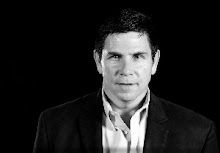Remembrances of NY after 9-11
Each year as 9-11 is remembered, I think back on my own experiences in New York City in the immediate aftermath of the attacks. I went to NYC as part of a ministry team jointly assembled by the Billy Graham ministry and Samaritan’s Purse. A prayer center was set up several blocks from Ground Zero, and many local Christian volunteers were quickly trained to pray with people on the phone. Even though New York at this time was a place of immeasurable pain and grief, the Holy Spirit was very much at work in the lives of people there.
I remember hand-made flyers being posted by people who were frantically searching for missing loved ones. The hastily created “Have You Seen This Person?” flyers were posted for blocks and blocks. Around New York’s old Armory building, especially, there were incredibly touching scenes. Through many tears, countless men and women were waving flyers and calling out, “Has any one seen__________? Does any one have any information on the whereabouts of _____________ ? Please help us find this person!”
I remember a small pink bicycle near the Armory, covered in flowers like a shrine. All around were flyers requesting information about the bike’s owner- a little girl who had been in a day care facility in one of the Trade Towers. It was hard to walk past the little vacant bike without becoming emotional.
People were hurting, yet there was clearly a spiritual hunger and tenderness. I think that to some degree, that openness and spiritual receptivity continues to this day. I remember about 3 or 4 days after the attacks had happened I was near Wall Street, where I had been sent to deliver some flyers about the Prayer Center. It was about 5:15 PM, and I was standing at a crosswalk with a couple of dozen other people, waiting for the light to change. Some one commented on the flyers I was holding, which had contact info about the Billy Graham Prayer Center.
Suddenly, some one called out, “Is the world going to end? Is this going to be the beginning of Armageddon?” It seemed like every one at that crosswalk was now looking intently at me, waiting for my response. I explained that, “Yes, the Bible teaches that the world will end at some point. Christ is coming back one day, but that no one knows exactly when that will be. The important thing is to be prepared.” The light changed to “Walk,” yet nobody walked. Nobody. Every person stood there listening as I explained the Gospel (competing with lots of background noise). I explained that through Jesus Christ, we can be ready for the end of life, whenever that may come.
Group after group came to the crosswalk, and it was well after 7:00 PM when the stream of pedestrians eventually ended. I had not started out on that particular errand to go “street preaching,” but so many people actually stopped to listen that two street vendors pulled their carts alongside the crowd. I boldly asked people to raise their hands if they were going to pray and put their faith in Jesus. I lost track of how many times I went through a brief explanation of the Gospel message. No one seemed ashamed to publicly acknowledge their response by publicly bowing in prayer.
I remember so many people asking me, “What is Islam? Why would these people do such a thing?” Ten years ago, most Americans had never heard words like “jihad.” It must not be forgotten 9-11 was an attempt to extinguish not only human lives but also democracy itself. The events of September 2001- and the worldview that sanctioned such acts- must be remembered.
I still have a copy of the New York Times that I bought on the Sunday after 9-11. There were full-page ads, placed by other American cities and by foreign countries. Stirring full-page ads from international governments expressed heartfelt condolences, along with pledges of support for the U.S.A. The apparent solidarity was touching.
Since then, each time I fly into New York my heart is stirred by memories of that time. I have often spent time sitting on the runway at JFK or Laguardia, praying. I sometimes say a prayer for people left bereaved by 9-11, many of whom are probably still hurting. I pray for God’s protection of our nation. I pray for the preservation of democracy. I pray that Americans everywhere would understand that our precious democracy was birthed by (and sustained by) a distinctly Biblical worldview. And I also pray that people of the Muslim world would soon understand that Jesus loves them all so much He paid for their sins on the cross.
As I walked through NYC 10 years ago, a verse that kept coming to my mind was a promise penned by the Old Testament writer, Habakkuk. He prophesized that one day “the knowledge of the glory of the Lord will cover the earth as the waters now cover the seas.” (2:14). To say the least, that day hasn't come just yet. But the thought of it comforts, inspires, and motivates me still. May this same Lord- known by our founders and those of previous generations- be America’s God today and always.
